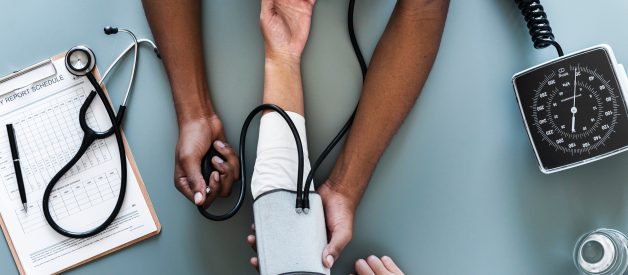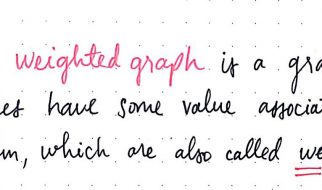In Other Words, Why You Don?t Have A Right to Healthcare
 Photo by rawpixel on Unsplash
Photo by rawpixel on Unsplash
Positive and negative rights sound like the topic for a boring political theory lecture. But with the right to healthcare, education and many other potential ?rights? floating around our political atmosphere, it?s a topic we need to understand. When you understand positive and negative rights, you understand what?s at the center of this discussion.
Unfortunately, what?s at the center is unpleasant.
Before we get started
I want everyone to have healthcare. This world would be much better if everyone had access to healthcare. If everyone were healthy and happy, the world would be a fantastic place. Personal health is a huge priority of mine.
But no matter how much I want that, it doesn?t mean that it?s a human right.
Let?s start by looking at Wikipedia?s definition of human rights.
Rights are legal, social, or ethical principles of freedom or entitlement; that is, rights are the fundamental normative rules about what is allowed of people or owed to people, according to some legal system, social convention, or ethical theory.
You?ll see two types of rights: Rights that discuss what people are allowed to do, and rights that discuss what people are owed. Rights that discuss what you are allowed to do are called negative rights. Rights which discuss what you?re owed are called positive rights.
There?s just one problem with that.
You are entitled to nothing.
Negative Rights
Constitutionally guaranteed American rights are all negative rights.
- The right to free speech is the right not to have others suppress your speech
- The right to bear arms is the right for others not to take your arms
- The right to not have the government post soldiers in your home
- The right not to have your house searched
So on and so forth. To fulfill these rights, no one has to do anything. No one has to give you anything. All they have to do is get out of the way.
The only right that could be construed as a positive right is the right to be judged by your peers. But consider the alternative, in which we are not judged by our peers, but instead by a faceless government representative. This right is then clearly understood as the right for you not to have the government judge you.
Positive Rights
Positive rights are a little different. With positive rights, others owe you something. Common examples of positive rights are:
- Healthcare
- Food
- Employment
- A good standard of living
- Internet Access
- Education
For all these rights, someone has to provide these rights. And?
Where there?s a receiver, there must be a giver.
If you have a right to receive something, someone else must provide it.
This doesn?t sound so bad. At first.
So, someone has to provide these rights. Perhaps the government is providing them. But who provides them to the government?
Perhaps rich people. But if the rich people don?t give these things willingly to the government, what do you do then?
Do you take it by force?
According to the theory of positive rights, you can.
You have a right, after all! As long as you only take what you?re owed, you?ve done nothing wrong. Except?
So, you are doing something wrong.
You?re not taking ?what you?re owed.? You?re just taking.
This is the problem with positive rights. At the end of the day, positive rights justify theft (or forced labor, if the right requires work). Calling something a ?positive right? is an attempt to put a positive spin on the act of taking from someone else.
For example, in healthcare: if no one volunteered the money, or if no one voluntarily became a doctor, the ?positive right to healthcare? would justify stealing from rich people and conscripting people to become doctors.
I shouldn?t have to tell you this is wrong.
In Conclusion
Healthcare is great. Healthcare is fantastic. I want everyone to have healthcare. But not if it means stealing from people or forcing people to become doctors. No matter how much I want everyone to have healthcare, it isn?t a right.
Addressing Objections
Here I?d like to take a moment and address possible objections to this article.
Rich people have over a hundred times the wealth of the poor. They use this wealth for nothing. Therefore, we are justified in taking their wealth and using it to improve our conditions.
You might believe this. It?s not my cup of tea, but I understand if it is yours. But don?t pretend it?s about your ?right to education? or your ?right to healthcare.?
The core of this belief is that the rich are wasting resources. Because of this, we are morally required to redistribute the resources, so they?re maximally effective. So it isn?t really about a right to healthcare or education. It?s about wealth redistribution.
To achieve this goal, you?d be better off writing an amendment that limits the wealth of the richest.
When people say healthcare is a right, they mean a legal right, not a natural right.
You know what, you?re correct. But most people aren?t aware of the difference. They assume that when we?re talking about rights, we?re talking about natural rights. I have a legal right to claim gift expenses as a deduction off my taxes. But if I called that a right in conversation, people would look at me like I?m crazy. Whether healthcare should be a legal right or not is outside the scope of this article.
Yeah, if no one volunteered anything and no one became doctors we?d need to steal and conscript doctors, but that will never happen! We will never live in a country where no one wants to become a doctor.
It doesn?t matter. The American Constitution is built on inalienable natural rights, not situational practicalities. If someone could possibly use a law to justify slavery or theft, no matter how improbable, it doesn?t belong in American law books.
Also available on Megan E. Holstein?s blog.


